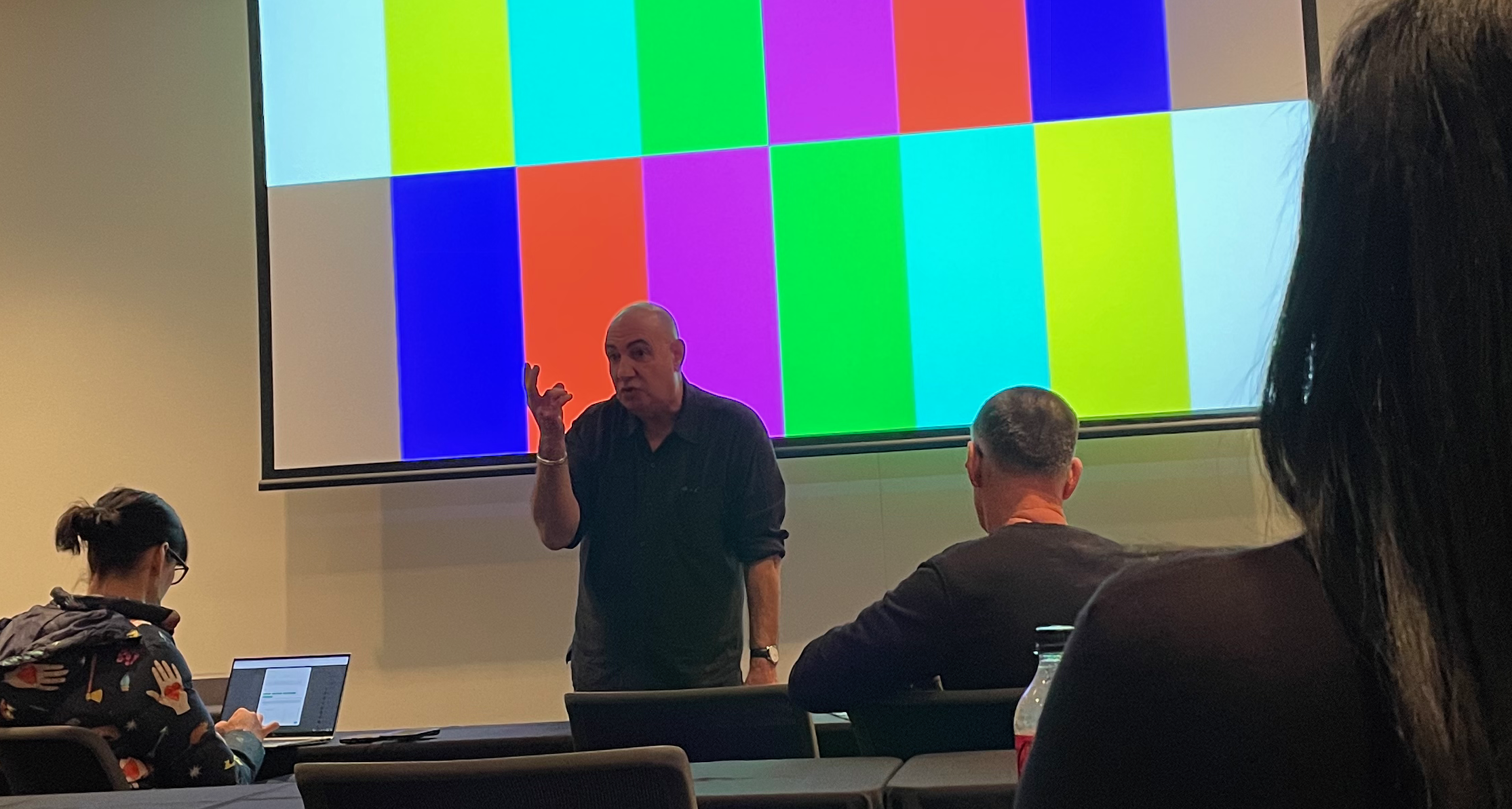Brisbane conference galvanises union movement
The ACTU’s first all-union get-together since 2017 was a rousing celebration of collectivism and the campaign for a Yes vote in the upcoming Voice to Parliament referendum.
The Making History Conference, held June 20-21, attracted 650 unionists from every Australian union and from every state and territory to the Brisbane Convention and Exhibition Centre for 62 workshops and nine plenary sessions. Topics included bargaining, equality, communication, technology, safety, solidarity, climate change, social networks, corporate research, liberation sociology, and education.
Kerry O’Brien, ACTU Indigenous Officer Lara Watson, Thomas Mayo, Sally McManus and Michele O’Neil launch The Voice to Parliament Handbook at the ACTU Making History Conference.
ACTU President Michele O’Neil said the movement had adapted during the pandemic when unionists couldn’t meet, but there was something “extraordinarily powerful and palpable about being in the same room together”.
She hailed the conference as a chance to “take the moment we’re in and actually turn it into something significant and lasting for workers” and said the sessions were “challenging, inspirational, and supportive”.
O’Neil said the entire union movement was committed to doing “everything possible” to make sure there is a Yes vote for a Voice to Parliament in the referendum to be held later this year.
“We also know that that’s not the end,” she said. “We’re committed to Voice, to Treaty and to truth telling and this is a job that’s going to continue and we won’t walk away after the successful vote in the referendum”.
On 19 June, 120 Indigenous unionists attended the ground-breaking 'Our Voice' ACTU Aboriginal and Torres Strait Islander Conference at the same venue. Attendees said the gathering proved that the stories of Indigenous unionists were a precious resource that needs to be collected and curated. Participants read speeches about Indigenous issues from 1993 which “could have been written yesterday”, underlining the need for the Voice to provide genuine Indigenous input into decision-making which affects their communities.
Indigenous unionists (and ACTU Secretary Sally McManus) say Yes to the Voice to Parliament at the Our Voice conference.
Unionists back the Voice to Parliament in Brisbane.
Little wins add up: McManus
ACTU Secretary Sally McManus continued O’Neil’s theme by saying the union movement is about ‘we’ not ‘I’.
She urged unionists who feel they are facing “insurmountable” challenges to channel the courage and determination of the Gurindji people, who won equal pay and land rights after a nine-year strike.
“All of our jobs as trade unionists are hard jobs. It’s not called the struggle for nothing. I suspect every single person in this room at some point in time has thought ‘Am I really making a difference?’ The fights are so big, you have losses and you might only get small wins and you can feel that ‘I’m only moving forward centimetres and sometimes I’m just holding the line. Am I making a difference?’”
Citing the union movement’s successful 15-year battle for paid domestic and family violence leave, McManus said it was the willingness to persist after setbacks that led to eventual reforms.
“None of us gave up and those little sparks, those little wins, those tiny centimetres were won over and over again across the country and in our movement and in workplaces by people like you…
“… It’s because we had a go and because we kept going even when we had those losses that those centimetres added up to kilometres and kilometres…”
Conference attendees get the lowdown on connecting with digital natives.
She said other big wins like the abolition of the Australian Building and Construction Commission, and the reinstatement of Fair Work Commission arbitration powers and multi-employer bargaining only occurred because workers overcame individual challenges.
“Every time we think we lose, we haven’t lost, we’ve just lit a spark. And when one of your colleagues gets a breakthrough in their workplace it keeps the spark alive; it keeps it going.
“For every 1000 times we have a go we might lose 900 but those 100 times take us forward and were still ready to fight the next time around. Over time not giving up and keeping going is how we win.
“We’re only in the position to make generational changes because of the work of delegates and organisers and 30 years of staying true.”
McManus says the union movement’s next big targets are insecure work, rights for gig economy workers, wage theft, and changes to laws governing the rights of union delegates and right of entry to workplace provisions.
John Falzon’s Sociology for Unionists session was warmly received.
IEU insights
Back in Melbourne 22 June, IEU staff reported back to their colleagues on the benefits of attending the conference. Some mentioned specific hacks suggested by other unionists at the conference, including the use of WhatsApp, Google Ads and LinkedIn to reach and organise members; rethinking retention and non-member policies; leveraging worker’s capital; and targeting board members of corporations that have unsatisfactory work practices.
Many new employees met interstate colleagues for the first time and were able to set up collaborations which will benefit campaigning and communications on all sides.
The conference also offered a touchstone for union values, with priceless connections achieved during and between sessions by members from different branches and from different unions.
In a session about the importance of storytelling for unionists, sociologist, poet and social justice advocate John Falzon reminded participants to listen closely: “It’s not the mouth, it’s the ear”.
“There is nothing more radical than making space for people to tell their stories”.
O’Neil addressed all members, whether they made it to Brisbane or not, by concluding, “What you do is tough but it’s so important for our country… what we do together is much more than what we can do apart”.





